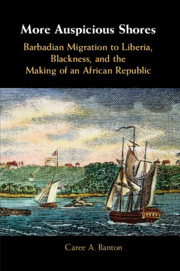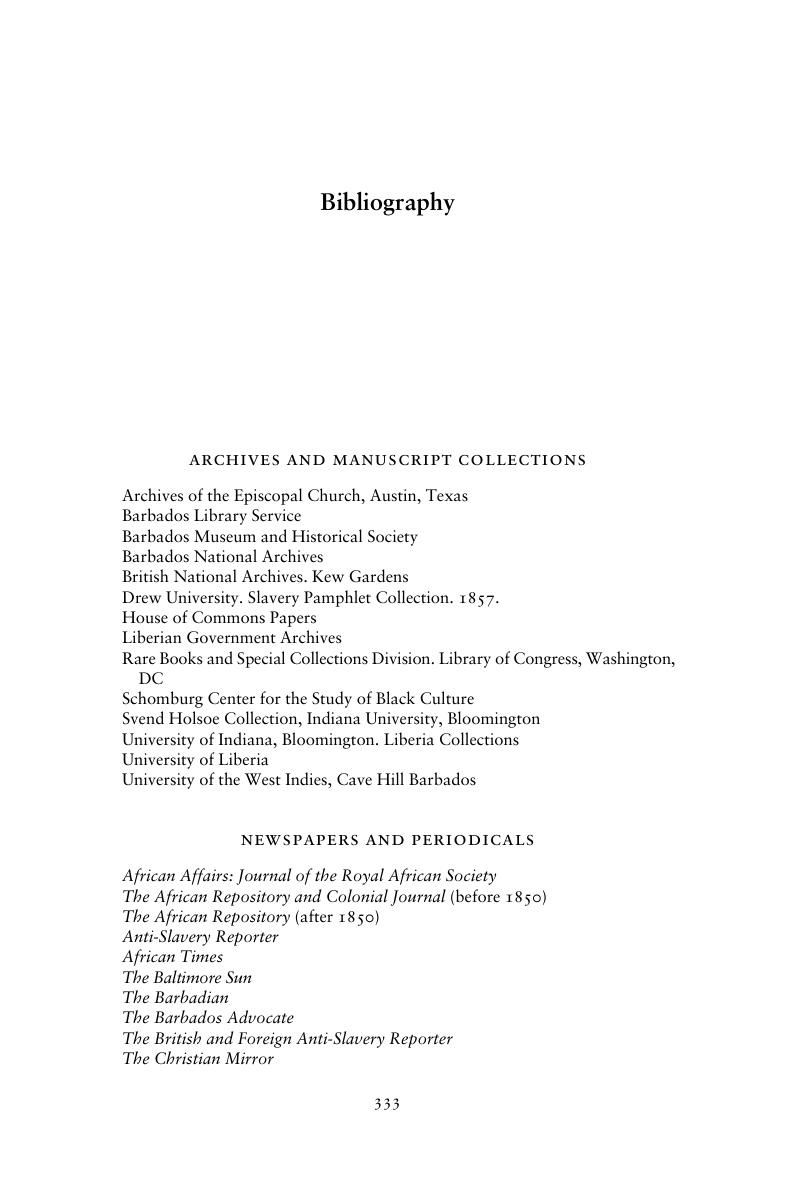 More Auspicious Shores
More Auspicious Shores Bibliography
Published online by Cambridge University Press: 03 May 2019
Summary

- Type
- Chapter
- Information
- More Auspicious ShoresBarbadian Migration to Liberia, Blackness, and the Making of an African Republic, pp. 333 - 351Publisher: Cambridge University PressPrint publication year: 2019
